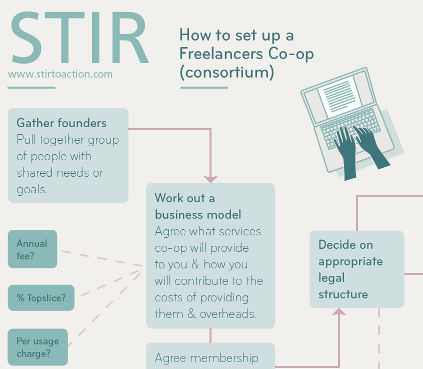21st January sees the 4th Ways Forward Conference in Manchester: ‘Building an Economy to Serve People not Profit’. Follow developments on twitter at #WF4.
The conference – organised by Co-operative Business Consultants – aims to explore and debate responses to the challenges presented by Jeremy Corbyn’s call for democratic co-operative management of the public sector and other national industries, such as the railways and the energy sector:
- Exploring how workers and users can be effectively involved in public sector management
- Facing up to management capture as a major challenge for co-operatives
- Considering Co-operative viability in the global economy
I’m facilitating the ‘People’s Railway’ session, with speakers Christian Wolmar, award winning writer and broadcaster specialising in transport and the author of a series of books on railway history and John Tilley, RMT Regional Organiser, Nort h West & Eire Regions.
h West & Eire Regions.
So I’ve started considering the issues from a co-operative perspective, and of course they are many and significant. (Thanks to Jean Nunn-Price and Alex Lawrie of www.go-op.coop for input).
- Perhaps the biggest question is what could replace the present franchising system? Franchises are a high stakes gamble and for a co-operative the stakes are too high. No co-op could justify to its members the multi-million pound gamble that is tendering for a franchise. We need a different system, such as for example micro-franchises? Or core routes state-owned, and other routes open access?
- Then what could be the role for co-operatives? Co-operatives need to be entrepreneurial, and that means they need to be able to alter their geographical remit at will, as business opportunities permit. So their role might be to complement a national publically owned and democratically accountable rail service.
As ever, a focus on international co-operative principles provides a useful starting point:
- Autonomy: a co-operative is an independent organisation, not owned or linked to the state or any other organisation
- Democratic Member Control: Who would be the members? The main stakeholders would be:
o Travelling public
o Staff &/or Trade Unions
o Investors
So the co-operative could have representation from each category – which suggests some form of multi-stakeholder co-operative. GO-OP Co-operative is a bona fide co-operative, registered using Somerset Rules, and has User (passengers and employees) and Non-user (investor) classes of shares, and voting arrangements are organised such that the User members always retain control of the co-operative.
- Membership in a co-operative is voluntary – no-one can be forced to join. So what about staff who don’t want to join?
- Member Economic Participation: You wouldn’t have to be a member to travel, but member benefits, for example dividend on spend, need to be part of the deal. Of course members will be able to choose Directors and attend the AGM. There could also be local member groups to give feedback on the quality of the service and hold social events.
- Organisational structure: UK Railway management is structured on a hierarchical model, with pay structures that are highly inequitable. How could management structures be converted to a more equitable model without losing experienced staff?
- Collaboration with other rail industry organisations – specifically Network Rail: Network Rail would need to be re-structured to become democratic and accountable to its passengers. The Co-op Party has called for Network Rail to become a consumer mutual, where passengers would be represented on the Board, be involved in the development of a strategic plan and have powers to control remuneration and appoint and dismiss the Chair and non-executive directors.
These are just some of the issues that need to be considered – but I’d be glad to hear thoughts and comments from co-operators & and anyone interested in making our railways more efficient, democratic and accountable.
Kate Whittle, January 2016
@cooperantics



